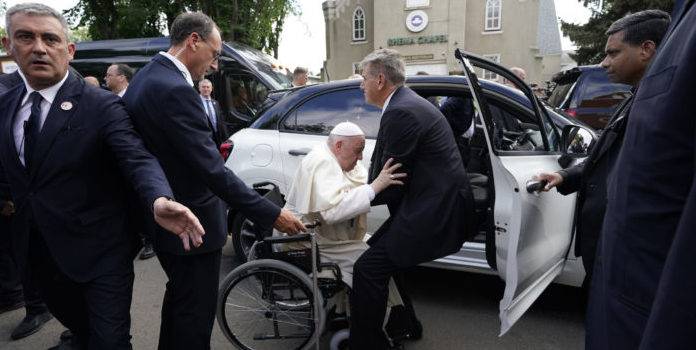(Ezekiel Loseke, Headline USA) The Holy Father, Pope Francis, has updated and finalized his 2019 Vos estis lux mundi, which was his landmark legislation to counter sexual abuse in the Catholic Church.
The previous version of the promulgation was experimental and has been in place since 2019, according to Vatican News.
The new version clarifies that the archbishop responsible for the area where the crime occurred is responsible for the investigation. The updated law requires an established office the public may visit, whereas the previous one only required a “stable system.”
It also requires the protection of the privacy of accuser and accused, and the presumption of innocence until proven guilty. The law also establishes strict timelines regarding the investigation of bishops.
Michael J. Mazza—the author of The Right of a Cleric to Bona Fama, and a graduate from the Pontifical University of the Holy Cross whose practice specializes in defamation actions and the protection of clerics, spoke to The Daily Wire about the updated law.
“The new VELM contains a slight but potentially significant change in the reporting obligations,” Mazza pointed out. “Now defined in terms such that anything revealed to a cleric ‘in the internal forum’ is excepted from the reporting requirement.”
With this exception, Mazza argues, Pope Francis clearly implies that civil law is to take priority over cannon law in cases involving sexual misconduct.
Another update of the policy is the inclusion of laypeople, non-ordained Catholics in the accountability process.
“The lay faithful who are or have been moderators of international associations of the faithful recognized or created by the Apostolic See [are responsible] for acts committed [while they were in office],” the updated version reads.
The updated version also includes new protections for the mentally disabled.
The initial version referred to “sexual acts with a minor or a vulnerable person,” but the updated law speaks of “a crime against the Sixth Commandment of the Decalogue committed with a minor, or with a person who habitually has an imperfect use of reason, or with a vulnerable adult.”
Mazza also spoke about the presumption of innocence of the accused.
“I am very pleased to see the right to reputation is now specifically mentioned, along with respect for the presumption of innocence,” he wrote.
“It will be interesting to see if this very clear direction from the Holy See will have an impact on the odious — but very common — practice in the USA of publishing the names of ‘credibly accused’ clerics before any penal process has occurred. This is often done in the name of ‘transparency,’ but it wreaks an unjust, serious, and lasting harm to the reputation of accused clerics.”

